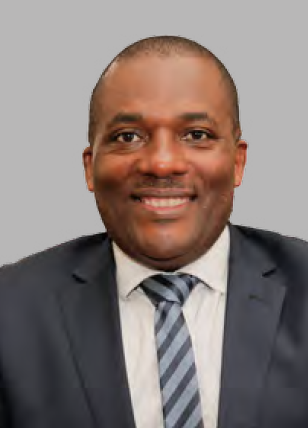By Byron Mutingwende
Tendai Chigamba (not his real name) developed a tumour on the neck. At first his parents thought it was just a boil, which would heal with time. Months went by and the hope waned as the growth increased in size. The tumour later disturbed Chigamba’s breathing.
“We went to the local clinic in the Chireya area of Gokwe for treatment. The clinic simply dispensed Paracetamol tablets for painkilling. We even tried local traditional healers but to no avail. Others told us to sell an ox at the local butchery so we could raise money to visit one of the popular prophets in Harare,” Chireya’s father said, hopelessness written on his face.
When the healing mantles the family was given by the popular prophet failed to give a panacea to the problem, Chigamba was finally booked for an operation at one of the biggest referral hospitals in the capital. The operation was not successful and he sadly passed away at the tender age of 20.
Recently, there has been an upsurge in health complications among all age groups. Many people are dying of diseases like cancer due to the lack of specialist medical practitioners. The few lucky ones get donations to visit countries like South Africa and India for chemotherapy sessions in the case of cancer.
“I was lucky to raise transport money and hospital fees from well-wishers to have a growth that developed between my lungs removed by specialists in India. The operation was successful and I am strong again. It’s not the case with everyone that they will be able to raise huge sums of money required for specialist treatment from abroad,” said a man who requested to remain anonymous.
According to a report by the NewsDay newspaper, the Zimbabwe government’s investment in the health sector has been inadequate and the country has generally depended on donor support and direct budget support to run the public health institutions. Health funding by Treasury has always been far below the 15% threshold as required by the Abuja Declaration to which Zimbabwe is a signatory.
In addition to the over-reliance on donor-funded medicine, the report cited a depressed budget per person per year; the high infant and mortality rate; as well as the high population per doctor ratio as some symptoms of a comatose healthcare system.
Speaking to journalists in Harare at the ZimSelector Journalists Insurance Mentorship Programme workshop recently, Vulindlela Ndlovu, the CIMAS Chief Executive Officer said healthcare could be an engine for growth in the economy.
“There is potential for specialist health institutions to be established that could attract patients from other countries. Currently, there is a critical shortage of specialists in Zimbabwe in certain areas, necessitating treatment for some conditions in other countries,” Ndlovu said.
He said there were areas of specialist expertise where, if local specialists came together to establish affordable specialist health institutions, not only could Zimbabweans be treated locally but patients could be attracted from other countries.
Ndlovu gave an eye hospital as an example of a specialist institution that local eye specialists could establish.
At present Zimbabweans and people from all over Africa were being referred to an eye hospital in South Africa for treatment. If eye specialists in Zimbabwe were to establish an eye hospital, they could attract patients from other countries who currently had to go to South Africa, he said.
Ndlovu added that medical aid societies were playing a critical role in the health sector both in funding medical treatment and in providing health and medical services themselves.
He denied there was any conflict of interest in medical aid societies establishing health service facilities. Doing so worked well in other countries. Medical aid societies established these facilities because they wanted to ensure as many people as possible had access to health facilities.
Challenges medical aid societies faced included the lack of a common economic tariff agreed to by both funders and service providers, delays in contribution payments, fraud and the costly disintegrated medical practice units, which resulted in high costs, as each service provider charged separately for the services provided for a medical procedure.
An operation at a private clinic could results in six different invoices, after the hospital, surgeon, anaesthetist, laboratory pathology and others, such as a physiotherapist, had submitted their bills.
In India, he said, included in a hospital package were the services of a whole suite of specialists.
He cited the example of a child with a chronic mental disorder treated in India. At the hospital, the child was seen by a neuro-paediatrician, child development specialist, psychiatrist, ophthalmologist, ear nose and throat specialist, speech therapist, occupational therapist and physiotherapist, all for the same price as it would have cost just for the services of a single neuro‑surgeon in Zimbabwe.
He said Cimas was placing a major emphasis on promoting wellness among its members. Instances of non‑communicable diseases such as hypertension, diabetes, heart disease and cancer were all on the rise.
Wellness programmes, which included exercise, the correct diet and lifestyle changes such as giving up smoking and reducing one’s alcohol intake, reduced the risk of these diseases. Hence the importance Cimas was according its wellness programme to improve the quality of life of its members and help extend their lifespan.






